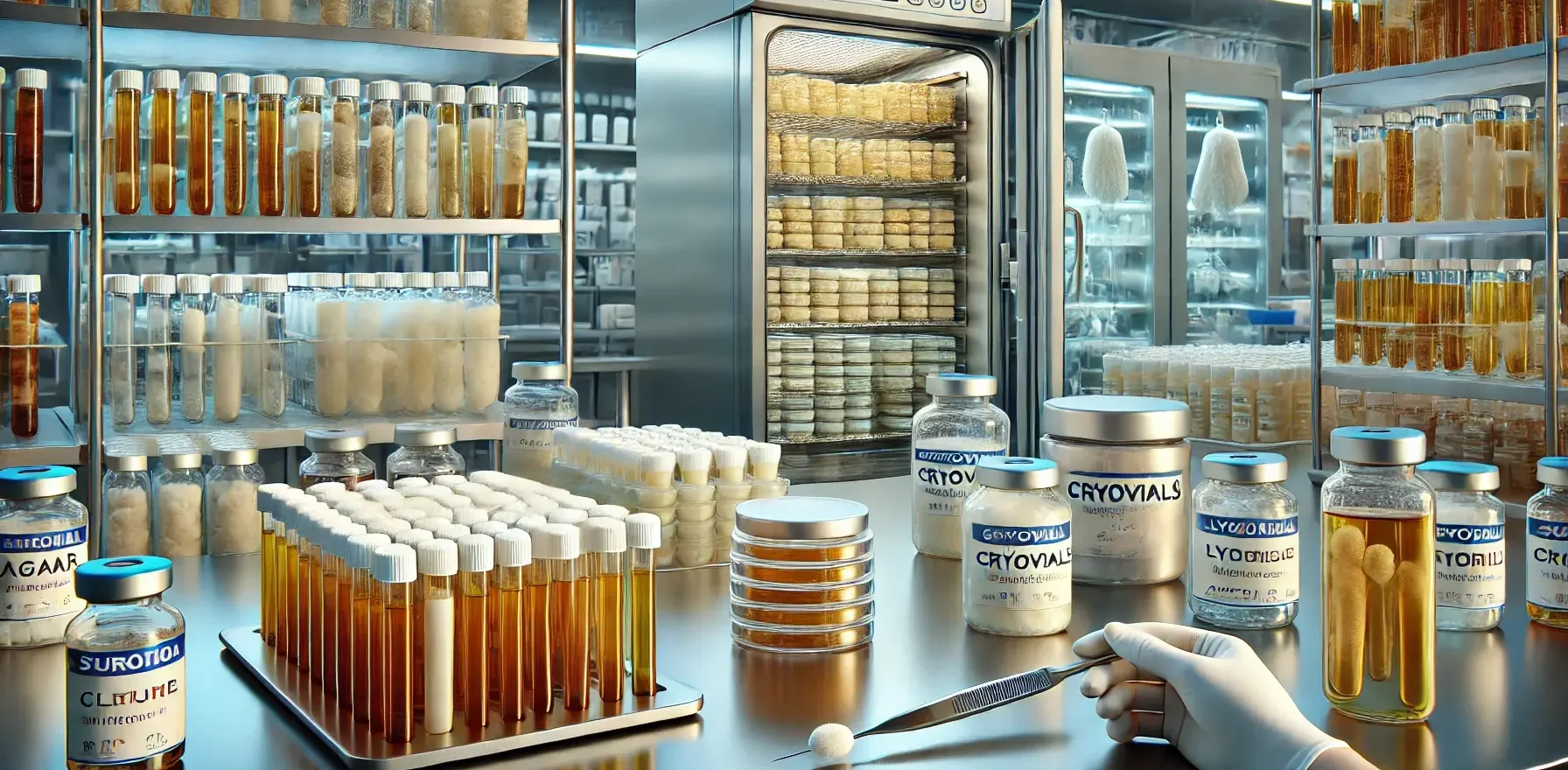- Preserving pure cultures is essential for maintaining bacterial viability and genetic stability over extended periods.
- Common preservation methods include:

This is a sample ad placement!
Refrigeration of Preservation Methods for Pure Cultures
- Temperature: 4°C
- Duration: Short-term storage (weeks to months).
- Procedure: Cultures are stored on agar slants or in broth media in a refrigerator.
- Advantages: Simple and easy for short-term use.
Freezing of Preservation Methods for Pure Cultures
- Temperature: -20°C to -80°C
- Duration: Long-term storage (years).
- Procedure: Cultures are mixed with a cryoprotectant (e.g., glycerol) to prevent ice crystal formation and stored in a deep freezer.
- Advantages: Effective for long-term preservation with high viability.
This is a sample ad placement!
Lyophilization (Freeze-Drying)
- Procedure: Cultures are frozen and then subjected to a vacuum to remove water by sublimation, leaving a dry powder.
- Storage: The powder is sealed in ampoules or vials and stored at room temperature or in a refrigerator.
- Advantages: Very long-term storage (decades) maintains viability and genetic stability.
Cryopreservation in Liquid Nitrogen
- Temperature: -196°C
- Duration: Very long-term storage (decades).
- Procedure: Cultures are suspended in a cryoprotectant and stored in liquid nitrogen.
- Advantages: Maintains high viability and genetic stability over very long periods.
This is a sample ad placement!
Use of Culture Media Additives
- Procedure: Addition of substances like glycerol, dimethyl sulfoxide (DMSO), or skim milk as protectants during freezing.
- Goal: Enhance survival rates during storage and thawing.
- Advantages: Increases the effectiveness of freezing methods.
Thank you for reading from Firsthope's notes, don't forget to check YouTube videos!

